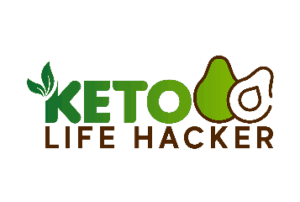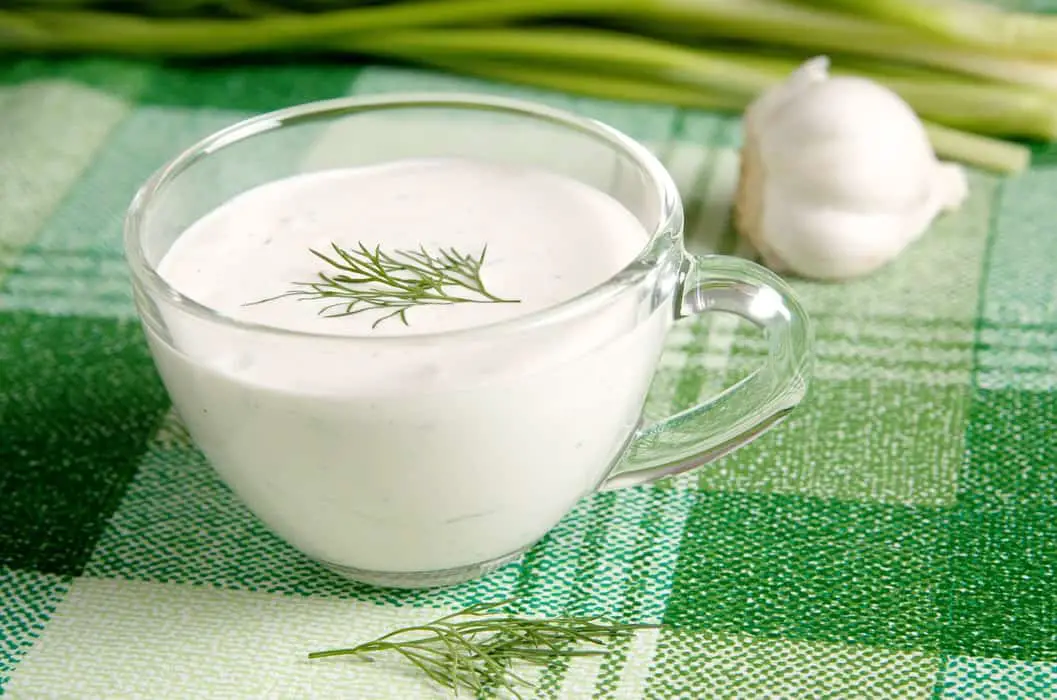Sour cream is a great side dish or addition to plates like baked potatoes, soups, and salad dressings. However it’s not always thought of as conventionally healthy. However, depending on the type of sour cream you buy, you can actually get a lot of great nutrients out of it, without necessarily taking yourself out of ketosis.
Sour cream’s calorie count and overall nutritional value tend to depend on the specific brand, and the associated fat content, so there’s definitely some variety of types of sour cream when deciding if it is okay to add to your diet.
For keto specifically, we’ll want to examine the nutrition makeup of sour cream to truly understand whether or not it’s safe for staying in ketosis.
To start, let’s examine what sour cream is really made of.
What Is Sour Cream?
Sour cream is characterized as a dairy product that’s made by fermenting cream with certain types of bacteria that produce lots of lactic acid.
The bacteria in this fermenting process helps to thicken up the cream, turning it more and more sour, until the final version of sour cream has been created.
Because of the fragile nature of this fermenting process, sour cream is manufactured in a fairly quick manner to avoid becoming too acidic. Because of this, sour cream tends to have a shorter shelf life, but it is still a perfectly healthy, fat-full side dish.
The amount of carbohydrates in sour cream vary, but are typically between 2.7% and 4% of the overall content. This is due to the milk sugar’s inability to disintegrate in the acidic fermenting environment. Keeping this carbohydrate ratio and non-disintegrated milk sugar mind, you definitely shouldn’t overdo it when it comes to adding sour cream to your dishes, but it can be keto friendly in the right settings.
Let’s take a deeper look into the nutrients that make up sour cream, and why in many cases, it has packs a positive macro punch for low carb dieters like you and me.
Nutrient Breakdown of Sour Cream
As you may already know from following the keto diet, the goal in mind is to follow a diet with very low carbohydrates, moderate amounts of protein, and high amounts of fat. So when looking into individual types of food, you’ll want to make sure that they meet these criteria.
In general, one cup of sour cream typically will yield the following:
- About 444 calories
- 4.8 grams of protein
- 45.4 grams of fat
- 8.1 grams of carbs
- 23% of the RDA for riboflavin
- 9% of the RDA for selenium
- 25% of the RDA for calcium
- 26% of the RDA for phosphorus
- 11% of the RDA for vitamin B12
- 9% of the RDA for potassium
- 6% of the RDA for magnesium
- 26% of the RDA for vitamin A
Based on these nutrition facts, particularly those macros, it’s clear to see that sour cream definitely stands on its own when it comes to its fat content, and should be considered a great option for wanting to increase your healthy fat macro into your daily diet.
Those carbohydrate numbers are a bit of a drawback though, and tend to vary depending on the brand of sour cream. It’s a fine balance between those carbs and fat, so you should still be sparing with the dollops of sour cream that you add to each dish.
Fortunately, there are only trace amounts of sugar found in sour cream, making it a lot more safe when isolated to net carbohydrates. There is still some sugar, because all lactose-based products do have inherent sugar, but not enough to take you out of ketosis in one serving.
For a lot of people however a loose guideline isn’t quite enough, and I get that. Losing your state of ketosis could mean undoing months and months of hard work, and it shouldn’t be taken lightly. But I don’t think that’s a reason to give up on sour cream altogether either. Let’s dive a little deeper into those carbs and set some reasonable keto-friendly guidelines to follow when enjoying sour cream.
Is Sour Cream Keto-Friendly?

After reviewing the macronutrient background of sour cream, accounting for how milk sugars aren’t disintegrated during its fermentation process, and weighing the carbohydrate ratio versus the protein and fat ratio, I’m confident in confirming that sour cream is indeed keto-friendly.
However like I mentioned above, there are a few caveats when it comes to sour cream and keto, and the biggest one is portion control.
Many people who struggle with the keto diet tend to run into a fat macro problem at one point or another. It’s easy to bulk up with protein, but healthy fats can be much more challenging to come by. That’s why I’m all in for sour cream. It’s high fat content and relatively low carb content makes it a powerful tool for hitting your macro goals.
As long as you eat it in moderation, and make sure to keep tabs on the exact brands’ nutrition value that you’re eating, you should be perfectly fine while in ketosis.
Benefits of Sour Cream
On top of that high fat content, which is mostly a benefit central to the keto diet, since you require an abundance of fats to help your body burn energy, sour cream has a variety of other added benefits too.
For starters, it makes a great fat-based addition to dishes that might need some cooling down. Sour cream has been proven to be a highly effective side to help neutralize spicy food. It also can be included in a lot of baking recipes that are predominantly free of sugar and flour.
As I mentioned above, sour cream is rich in important vitamins and nutrients like phosphorus, calcium, riboflavin, and vitamin B12. These are all very important to maintaining our body’s natural processes to support our daily lives. I’ll explain a little more specifically below:
- Calcium
Sour cream is an excellent source of calcium, which is characterized as a mineral that your body requires in order to boost bone growth and bone health. In addition to the benefits it can give to your bones, the calcium that is associated with sour cream is very important for the function of your nerves, muscles and heart. With so many Americans being calcium deficient, it’s always good to know where you might be able to find a good source of calcium.
- Vitamin B12
Vitamin B12 is essential in helping to keep your nerve cells healthy, and it also has some suggested benefits for those with certain autoimmune function conditions. Recent studies suggest that consuming a higher-than-recommended intake of vitamin B-12 might even be able to prevent the onset of active Systemic Lupus Erythematosus, which is an autoimmune disease that is known for attacking the joints, kidneys and skin.
- Phosphorus
One cup of sour cream comes with nearly 26% of the recommended daily amount of phosphorus. This is an important nutrient, because our bodies need phosphorus to promote bone health as well as to better process macronutrients. The phosphorus that you get out of eating sour cream works in unison with the B vitamins like B12 that are also in sour cream in order to help keep a multitude of bodily processes functioning smoothly.
- Riboflavin
One cup of sour cream has been shown to come with over 23 percent of the daily recommended amount of riboflavin, also commonly referred to as vitamin B-2. Your body does not naturally produce or store riboflavin, which is why it’s very important to get riboflavin from the foods that we eat, such as sour cream. Riboflavin is an integral vitamin that is associated with converting food into energy, which obviously comes into play heavily while your body is in ketosis.
Keto-Friendly Sour Cream Dish Ideas
So we’ve determined that sour cream can be keto-friendly in the right doses, now what?
Now that we have our guidelines, I’ve got a few great recipes that I wanted to share to help inspire you to create your next sour cream enriched dish. Leave a comment below if you’ve tried any of these, or if you have any keto-friendly sour cream recipes of your own that you’d like to share!
Easy Creamed Spinach
Keto Nachos

